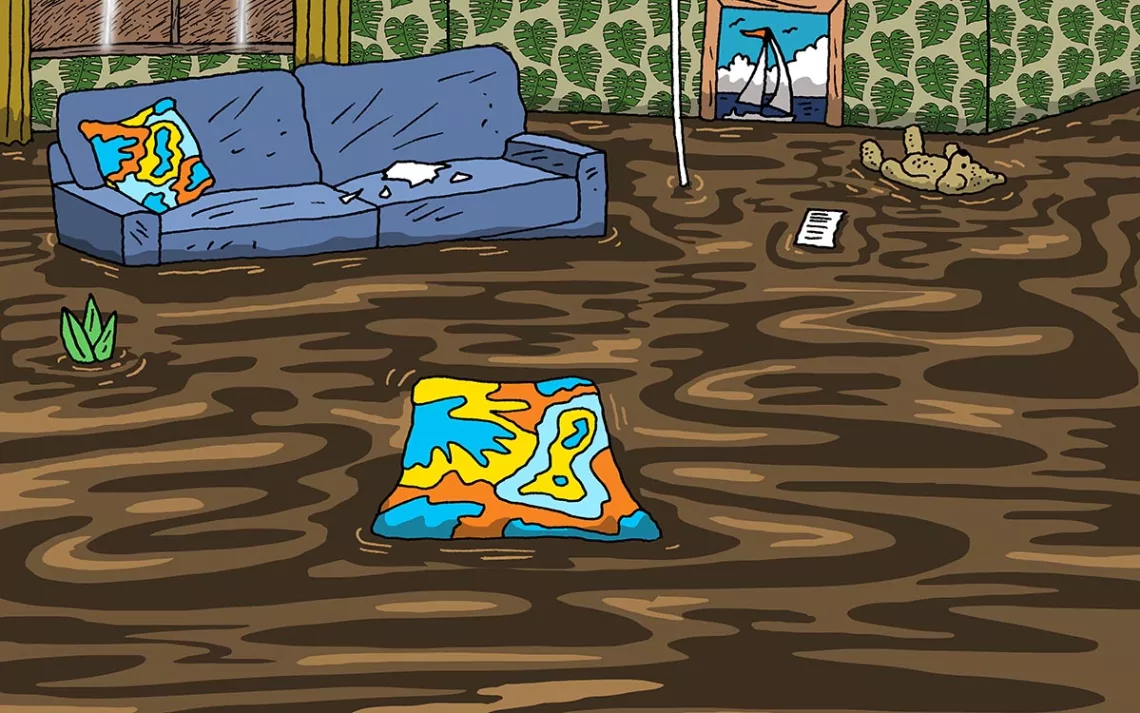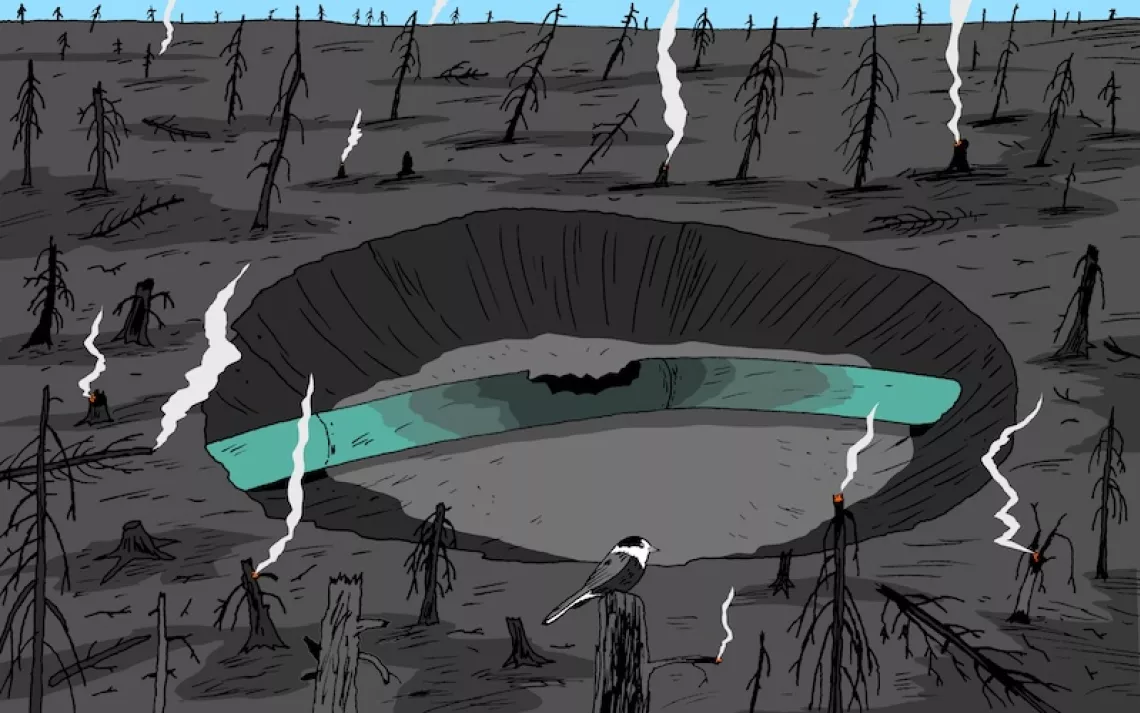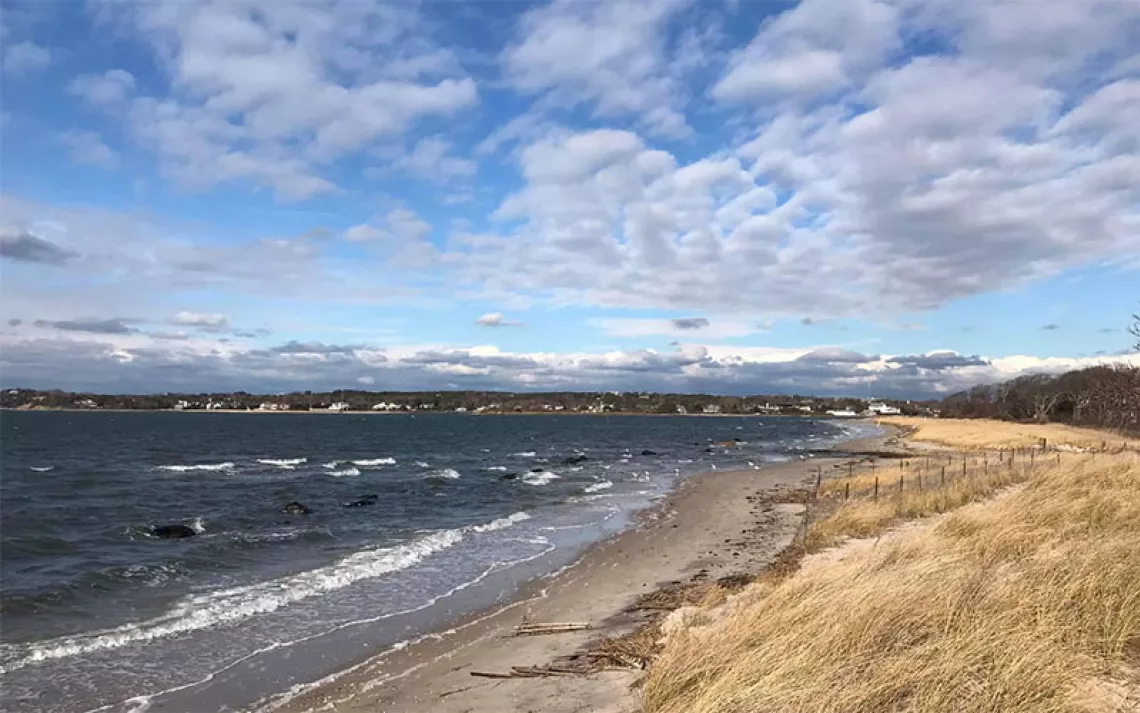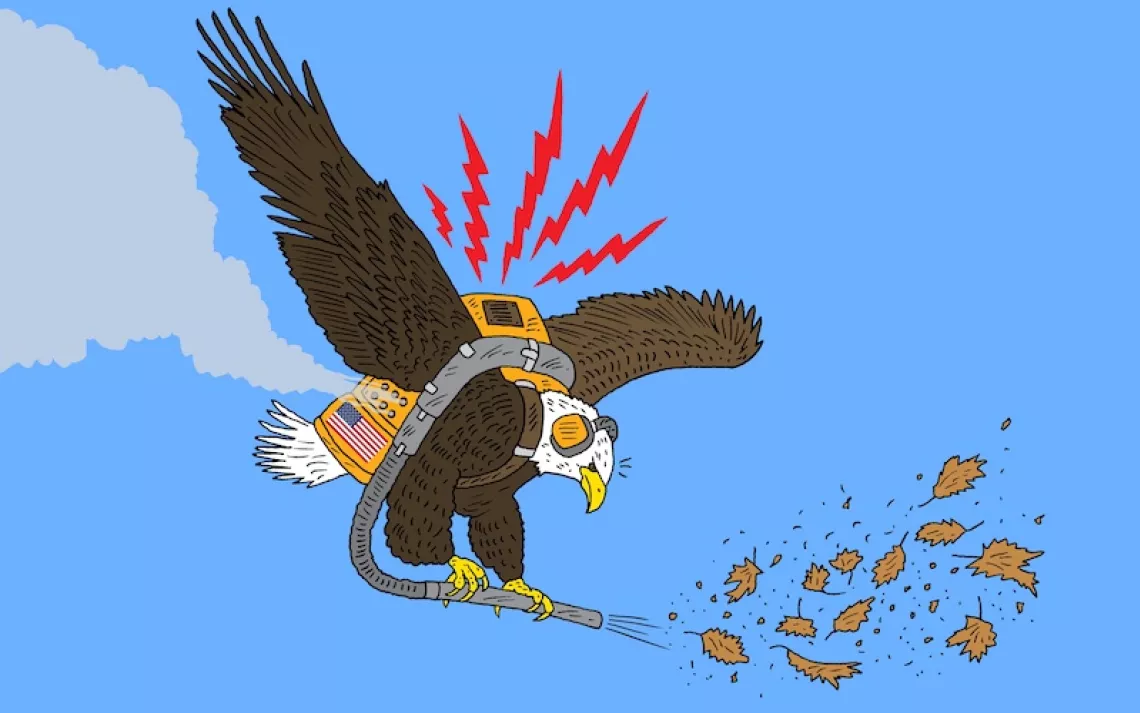Environmental News ICYMI 9-15-17
A weekly roundup for busy people

Illustration by Peter Arkle
It’s been a record-breaking week for hurricanes. Early estimates of the combined damage caused by Hurricanes Harvey and Irma are in the realm of $290 billion—almost a quarter of what the United States has spent recovering from all natural disasters since 1980, or about 1.5 percent of the total U.S. GDP.
Meanwhile, Hurricanes Irma and Jose achieved the first recorded instance of two storms clocking wind speeds of 150 mph at the same time, and the Atlantic Ocean found itself in possession of three hurricanes at or over the level of a Category 2 (Irma, Jose, and Katia) for the first time since 1893.
Several Tesla owners in Florida discovered that their cars now showed 75 kWh of range (about 30 more miles per charge), not the 60 kWh batteries that they had originally paid for. A Tesla spokesperson confirmed that the 60 kWh were actually just 75 kWh batteries with software that artificially limited their range and said that Tesla had unlocked them remotely to enable car owners to get farther away from Hurricane Irma.
In the wake of Irma, state and federal environmental regulators issued a hall pass for electric companies in Florida to violate clean air and water standards without penalty for the next two weeks.
After the EPA declined to release any of its test results, the New York Times tested floodwaters from Hurricane Harvey and found raised levels of lead and other hazardous metals, E. coli levels that were 135 times what is generally considered safe, and sand covered with balls of liquid mercury.
China’s vice minister of industry and information technology, Xin Goubin, announced that the country will be setting a deadline for automakers to end sales of fossil-fuel-powered vehicles, though he declined to say when. Previously, the UK and France announced their intention to ban all gasoline-powered cars by 2040, but China is the largest automobile purchaser to do so (and also the largest buyer of cars, period).
Meanwhile, two years after admitting that it had installed software in its diesel cars that allowed them to evade emissions tests, VW announced that it will be producing all-electric versions of all 300 of its car models (this includes cars sold under the Audi, Bentley, Bugatti, Lamborghini, and Porsche labels) by 2030. Many see this move as a warning shot across the bow of electric car upstart Tesla Motors, and a move to court the Chinese market.
Naruto, an endangered crested macaque monkey living at an Indonesian nature reserve, is now entitled to 25 percent of the proceeds of a selfie that he took in 2011 with a photographer’s unattended camera. The proceeds will go to charitable organizations that protect crested macaques. “We wanted every bit of all of the proceeds to benefit Naruto,” said Jeff Kerr, general counsel for PETA, but that goal became complicated after a judge assigned to the case ruled that animals do not have the same rights as humans when it comes to copyright. The settlement between the camera’s owner and PETA, who sued on behalf of Naruto, asks the court to void that ruling, leaving an open playing field for future animal selfie litigation.
Climate-change-enhanced wildfires shut down 24 climate-change-assisting natural gas operations in Alberta, Canada.
The Minnesota Department of Commerce recommended this week that a major tar sands oil pipeline, Enbridge Line 3, should not only not be built, but that its older predecessor should be shut down as well. Line 3 is the largest project in Enbridge’s history and one of several pipelines being blocked at the state level across the country.
A new study finds organic soil has the potential to sequester more carbon than soil from conventional farms.
An in-depth, five-year study of the world’s parasites concludes that one in three parasites are likely to go extinct over the next century. Don’t get your hopes up about deer ticks, though— current projections indicate that the (rapidly warming) world will be their oyster.
Plants may have been doing more to fight climate change than they’ve been letting on. A new study supports a theory that some plants are adapting to our new atmosphere by becoming more efficient at photosynthesis and removing more carbon from the air than they used to. This efficiency may also be making food crops less nutritious.
 The Magazine of The Sierra Club
The Magazine of The Sierra Club







